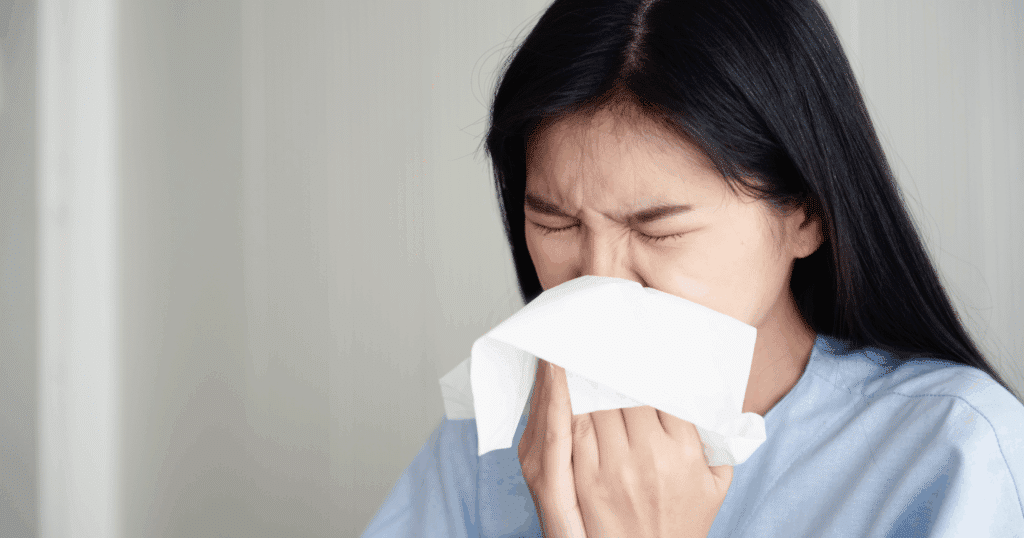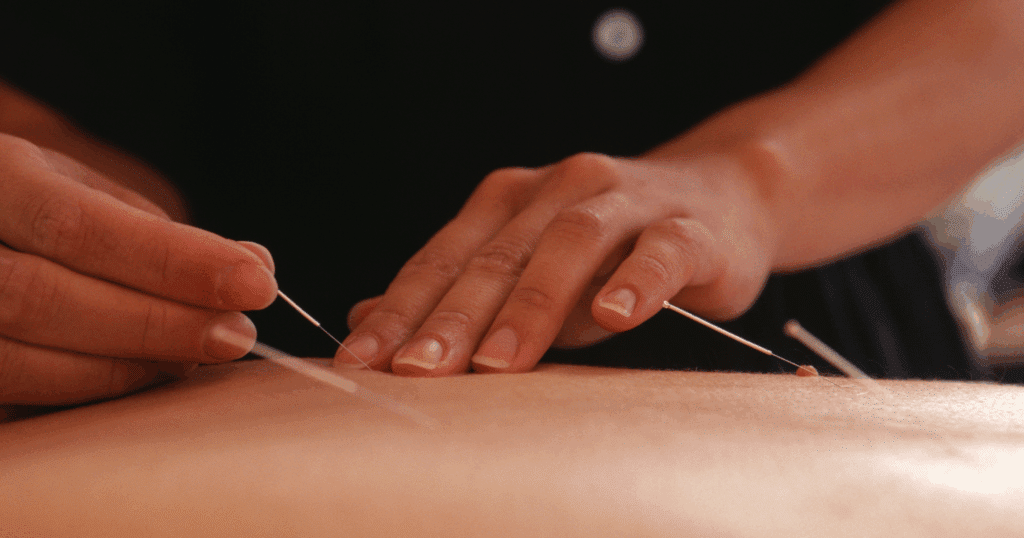As flu season approaches, conversations about prevention and protection start to fill our newsfeeds and doctor visits. While vaccines, vitamins, and hand hygiene are essential, there’s another layer of immune support that often goes overlooked: acupuncture. The role of acupuncture in boosting immunity before flu season lies in its ability to strengthen the body’s defenses, regulate energy flow, and promote balance that supports resilience against seasonal illnesses. This time-tested practice helps people strengthen their natural defenses, balance energy, and face seasonal challenges with resilience.
Key Takeaways
- Acupuncture strengthens immunity by improving circulation, balancing energy, and enhancing the body’s natural defense systems before flu season.
- Immune response becomes more adaptive through acupuncture’s regulation of cytokines and stress hormones, supporting balanced inflammation control.
- Seasonal resilience improves as acupuncture prepares the body to handle environmental stressors like cold air, low sunlight, and fatigue.
- Complementary benefits with vaccines highlight acupuncture’s ability to help the body respond more effectively to preventive treatments.
- Integrating acupuncture with lifestyle habits, like proper sleep, nutrition, and stress management, creates a well-rounded foundation for stronger immunity.
Understanding the Immune System & Flu Vulnerability
Innate vs. Adaptive Immunity
The immune system is an elegant network designed to protect us from harmful invaders.
- Innate Immunity: Acts as the body’s first responder. It relies on white blood cells, macrophages, dendritic cells, and natural killer cells to attack invaders immediately.
- Adaptive Immunity: Provides a more specialized defense. T and B lymphocytes identify specific pathogens and build long-term protection.
- Cytokines: Work as the immune system’s messengers, sending signals that coordinate the defense response.
Together, these components form an intelligent, layered shield that maintains health and protects us year-round.
Seasonal Factors That Suppress Immunity
When temperatures drop, the environment and daily habits change in ways that challenge immunity.
- Cold and Dry Air: Irritates nasal passages and reduces moisture, making mucous membranes more vulnerable.
- Indoor Heating: Lowers humidity levels, which can dry out protective tissues.
- Indoor Lifestyle: Spending extended hours inside and in close contact with others increases exposure risk.
- Reduced Sunlight: Fewer daylight hours mean less vitamin D, a key nutrient for immune function.
- Stress and Fatigue: Busy schedules, poor sleep, and even subtle dietary changes can lower the body’s ability to fight infection.
Together, these seasonal shifts create conditions where the immune system works harder to maintain balance.
Why Flu Strain Variation (Antigenic Drift) Makes Extra Boosting Useful
Each flu season introduces new viral strains, the result of antigenic drift, minor mutations that help the virus evade last year’s immune memory. This means that even vaccinated individuals can experience reduced protection. Acupuncture doesn’t replace vaccination, but it may improve your body’s baseline immune readiness, supporting the response to vaccines and providing adaptive flexibility. Traditional Chinese Medicine (TCM) has long used immune potentiators, natural “adjuvants”, to keep defenses alert between these annual shifts.
How Acupuncture Supports Immune Function (Mechanisms)
Traditional Chinese Medicine Perspective
In TCM, immunity is viewed as Wei Qi, or defensive energy, circulating at the body’s surface to protect against external pathogens. When Wei Qi is strong and free-flowing, we resist illness; when it’s weak or blocked, we become susceptible to “wind-cold” or “dampness”, metaphors for environmental stressors that can invade the system. Acupuncture restores this balance by stimulating meridians and harmonizing the body’s Qi. Many of our patients describe this as feeling more grounded, clearer, and stronger after a session, an internal recalibration that reflects external resilience.
Neuro-Immune Modulation
Modern science offers a fascinating lens to understand these ancient ideas.
- Neural Reflexes: When a needle is gently inserted into the skin, it stimulates reflexes in the nervous system that influence immune activity.
- Vagus Nerve Activation: By engaging the vagus nerve, acupuncture enhances parasympathetic tone, the state where the body rests, repairs, and regenerates.
- Cortisol Balance: This improved balance helps lower excessive cortisol, a stress hormone that can suppress immune function.
Together, these effects make acupuncture a natural reset for the mind-body connection, encouraging the immune system to function efficiently and harmoniously rather than reactively.
Inflammatory / Cytokine Regulation
Inflammation is both protector and saboteur. In moderation, it’s how we heal; in excess, it fuels chronic illness and fatigue. Acupuncture helps regulate cytokines, small proteins that guide inflammation, by down-regulating overactive signals like IL-6 and TNF while promoting anti-inflammatory counterparts. Researchers describe this as bidirectional regulation, meaning acupuncture doesn’t simply boost immunity, it teaches the immune system balance. This harmony supports faster recovery, reduced inflammation, and a steadier internal environment.
Circulation, Lymphatic Flow, and Tissue Perfusion
Healthy immunity depends on movement, of blood, lymph, and energy.
- Microcirculation Boost: Acupuncture enhances microcirculation, helping immune cells travel efficiently to areas where they’re needed most.
- Lymphatic Drainage: Improved lymphatic flow supports detoxification by removing metabolic waste and maintaining fluid balance.
- Tissue Nourishment: Enhanced tissue perfusion strengthens mucosal defenses and maintains barrier integrity.
Over time, these improvements create a stronger foundation for overall immune resilience, forming the body’s first line of protection against seasonal pathogens.
Synergy With Vaccination & Adjuvants
Emerging studies suggest acupuncture may improve the immune system’s responsiveness to vaccines. In some trials, combining TCM-based treatments with vaccines led to higher antibody levels and better overall protection. While these findings are still early, they underscore an exciting possibility: acupuncture can help the body become more receptive, efficient, and balanced in how it learns immune responses. Of course, more research is needed, but this synergy reinforces acupuncture’s role as a complementary, not alternative, approach.
Evidence & Clinical Research
Animal & Preclinical Studies
Laboratory studies on animal models reveal that acupuncture can enhance immune parameters, such as increasing macrophage activity and modulating natural killer cells. These results suggest an internal cascade, where local stimulation triggers systemic immune effects. Such preclinical research provides the biological foundation for what practitioners have observed for centuries: acupuncture promotes vitality through physiological coherence.
Human Clinical Trials & Systematic Reviews
Evidence from experimental and clinical studies indicates that acupuncture can modulate immune activity by influencing immunoglobulin levels, lymphocyte proliferation, cytokine expression, and natural killer (NK) cell function. Liang et al. (2015) reported that acupuncture, particularly at the Zusanli (ST36) point, has been associated with enhanced antistress and anti-inflammatory responses in human models. While many of these trials involve small cohorts or specific disease populations, the overall direction of findings suggests that acupuncture supports, rather than suppresses, immune function, often coinciding with improvements in physiological stress regulation and homeostasis.
Practical Application: When & How to Use Acupuncture for Immune Support
Ideal Timing & Frequency (Pre-Flu Season)
Starting acupuncture in late summer or early fall allows your immune system time to build equilibrium before flu season peaks. For most, one to two sessions per week for several weeks provides a strong foundation, followed by monthly maintenance to sustain results. Think of it as conditioning your body’s defense system, a proactive approach to staying well rather than reacting once symptoms appear.
Key Acupuncture Points for Immune Support
Acupuncture practitioners often focus on several key points that enhance immune resilience:
- ST36 (Zusanli): Supports vitality, digestion, and overall stamina.
- LI4 (Hegu): Helps release external pathogens and promote circulation.
- LU7 (Lieque): Strengthens lung energy and respiratory defense.
- BL13 (Feishu): Fortifies the respiratory system and assists in clearing congestion.
- SP6 (Sanyinjiao): Balances Qi and supports blood nourishment.
- CV17 (Shanzhong): Encourages emotional calm and opens the chest for better energy flow.
Each of these points plays a distinct role, and when combined thoughtfully, they form a powerful prescription that harmonizes internal balance while reinforcing the body’s natural defenses.
Techniques & Modalities to Consider
Acupuncture offers a variety of supportive techniques that can be tailored to enhance immune strength.
- Electroacupuncture: Uses mild electrical currents to increase stimulation at acupuncture points and deepen the therapeutic response.
- Moxibustion: Involves warming herbs like mugwort near the skin to invigorate Yang energy and strengthen Wei Qi, especially beneficial during colder months.
- Cupping Therapy: Creates gentle suction on the skin to promote circulation, release stagnation, and encourage detoxification.
- Gua Sha: Uses smooth tools to stimulate the surface of the skin, easing muscle tension and improving lymphatic flow.
- Home Support: For continued care, gentle acupressure or laser acupuncture can provide consistent reinforcement between sessions.
Each of these modalities supports the immune system through unique mechanisms, complementing acupuncture’s restorative and balancing effects.
Personalization & Contraindications
Each body presents a unique landscape. TCM categorizes individuals based on patterns such as deficiency, dampness, or excess heat. Our skilled practitioner tailors treatment to address these nuances, ensuring optimal results. While acupuncture is generally safe, those with bleeding disorders, pregnancy considerations, or certain medical implants should consult a licensed practitioner to customize care.
Integrative Immune Support: Beyond Acupuncture
Nutrition & Dietary Support
True wellness extends beyond the treatment table. Food is medicine, and seasonal eating supports internal balance. Warm, nourishing meals with ingredients like garlic, ginger, shiitake mushrooms, and astragalus root bolster the body’s defenses. Adequate intake of vitamin D, zinc, and vitamin C enhances immune readiness, while avoiding excessive sugar and processed foods helps minimize inflammation.
Lifestyle & Behavioral Factors
Our immune health mirrors our daily rhythms. Consistent sleep strengthens cellular repair, while moderate exercise, such as Tai Chi or Qi Gong, keeps energy flowing. Meditation and breathing exercises help calm the mind and steady the nervous system. By maintaining emotional balance, we create fertile ground for immunity to thrive. Stress reduction isn’t just a mental benefit, it’s an immune intervention.
Other TCM Modalities & Adjunctive Therapies
TCM doesn’t operate in isolation. Herbal medicine, for instance, often complements acupuncture to reinforce energy and fortify Wei Qi. Time-honored formulas such as Yu Ping Feng San (Jade Windscreen) are used to prevent seasonal illness. Gentle heat therapies like saunas or herbal foot soaks can also enhance circulation and encourage detoxification, promoting deeper wellness.
Vaccine Strategy & Conventional Preventive Measures
Acupuncture aligns with, not against, conventional medicine. It prepares the body to respond effectively to vaccines by optimizing immune tone beforehand. Receiving acupuncture before and after vaccination may help manage mild side effects like soreness or fatigue. Combined with responsible measures, such as hygiene, nutrition, and adequate rest, it forms part of a holistic prevention plan.
Safety, Risks, and How to Choose a Practitioner
Acupuncture is a safe, evidence-informed therapy when provided by a licensed professional. Minor side effects such as slight soreness or bruising are rare and temporary. To ensure quality care, consider the following when choosing your practitioner:
- Verify Credentials: Look for state licensure and certification through the National Certification Commission for Acupuncture and Oriental Medicine (NCCAOM).
- Ask About Experience: Inquire about their background with immune-related or seasonal wellness treatments.
- Check Safety Standards: Confirm the use of sterile, single-use needles and clean needle techniques.
At ACA Acupuncture & Wellness, treatments are performed with an emphasis on patient safety, transparency, and personalized care. Always avoid providers who promise instant cures or disregard proper medical consultation.
Strengthen Your Immunity Naturally with Acupuncture
Flu season doesn’t have to be a time of worry. By understanding how acupuncture strengthens immunity, you empower yourself with a proactive, natural approach to wellness. Through nervous system regulation, inflammation control, and energy balance, acupuncture offers more than symptom relief, it nurtures resilience from within. Pair it with balanced nutrition, restful sleep, and preventive habits, and you’ll be better prepared for whatever the season brings.
Source:
Liang, F., Cooper, E. L., Wang, H., Jing, X., Quispe-Cabanillas, J. G., & Kondo, T. (2015). Acupuncture and immunity. Evidence-based Complementary and Alternative Medicine, 2015, 1–2. https://doi.org/10.1155/2015/260620







Recent Comments